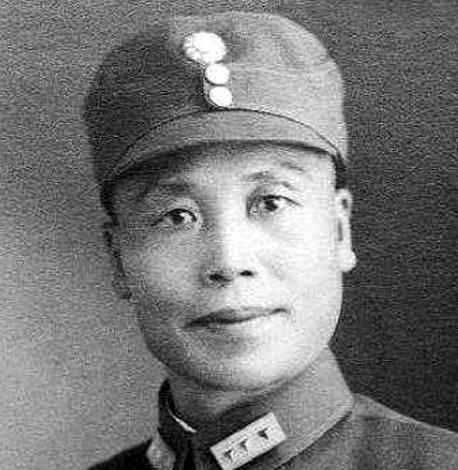In the spring and summer of 1938, the Japanese army gathered 350,000 troops, and due to the command of the commander of the Central China Dispatch Army, Hata Hata Shunroku, they attacked the overall situation in Wuhan.
The defense of Wuhan began.
In early October, the defense of Wuhan's periphery was still underway. The Japanese army on the northern front has approached Xinyang, and another part of the Japanese army has occupied Macheng and threatened Songbu. The enemy forces in the north of the jiangsu were advancing on Huangpi, and the Japanese army in the south of the river was already approaching the border of Xiang'e. The headquarters of the Commander of the Fifth Theater led by Li Zongren then moved from songbu north to Xiadian in Huang'an County.

On October 12, Xinyang fell. Li Zongren had originally sent a telegram ordering Hu Zongnan to retreat south from Xinyang, to guard The Pingjing Pass of Tongbai Mountain, and to cover the retreat of the eastern Hubei army to the west. However, Hu Zongnan actually disobeyed the order and moved the seven divisions westward and returned to Nanyang.
This move has serious consequences - the front door of Pinghan Road is open.
Why was Hu Zongnan so bold that he dared not obey orders? Because of his Chiang Kai-shek's concubines.
After fighting in Shanghai, Hu Zongnan withdrew from Jiangbei to Bengbu. Chiang Kai-shek once personally said to Li Zongren: "In the future, the southern part of Hu Zong will be transferred to the command of the Fifth Theater." However, after Hu Zongnan withdrew to Bengbu, he did not report to Li Zongren. After the fall of Xuzhou, the military command then explicitly ordered Hu Zongnan to belong to the Fifth Theater, but Hu Zongnan still never reported anything to Li Zongren. This time, when Xinyang was in danger, he withdrew to Nanyang without authorization. Li Zongren scolded angrily:
"At this critical juncture in the war situation, daring to disobey orders is really unorthodox."
He then reported to the Central Military Commission and demanded that Hu Zongnan be dealt with severely.
However, the Central Military Commission was not able to do so.
Why?
Because Hu Zongnan was a concubine of Chiang Kai-shek.
When Hu Zongnan on the front of Pinghan Road did not know where to go, Li Zongren urgently dispatched Qin Lianfang's 84th Army and Liu Ruming's 68th Army near the city to the area of Wusheng Pass and Pingjing Pass to choose to hold on. Unexpectedly, the 84th Army was oppressed by the Japanese army and had to retreat to Yingcheng. Liu Ruming's troops also had major problems.
Li Zongren, who was in Chen Village, could not contact them, and was very worried, and did not dare to sleep until midnight. Suddenly, he woke up: the enemy situation is serious! The headquarters was ordered to evacuate immediately.
After several hours of rapid marching, at dawn, Li Zongren and others arrived in Anlu County, only to learn that just two hours after they left Chen Village, more than 1,000 Japanese cavalry had reached Chen Village.
Because Hu Zongnan gave up frontal resistance, resulting in the loss of Wusheng Pass, the Japanese army drove straight down from then on, and the other Japanese troops in the east and south immediately stepped up their attacks, while the Chinese army saw the frontal loss and had to start withdrawing to save their lives.
In this way, on October 26, the Japanese army entered Wuhan.
Since Wuhan was lost, the defense war in Wuhan was over. Decades later, Li Zongren said of Hu Zongnan's abandonment of frontal resistance: "If this matter is committed by any other non-concubine general, it will undoubtedly be severely punished." ”